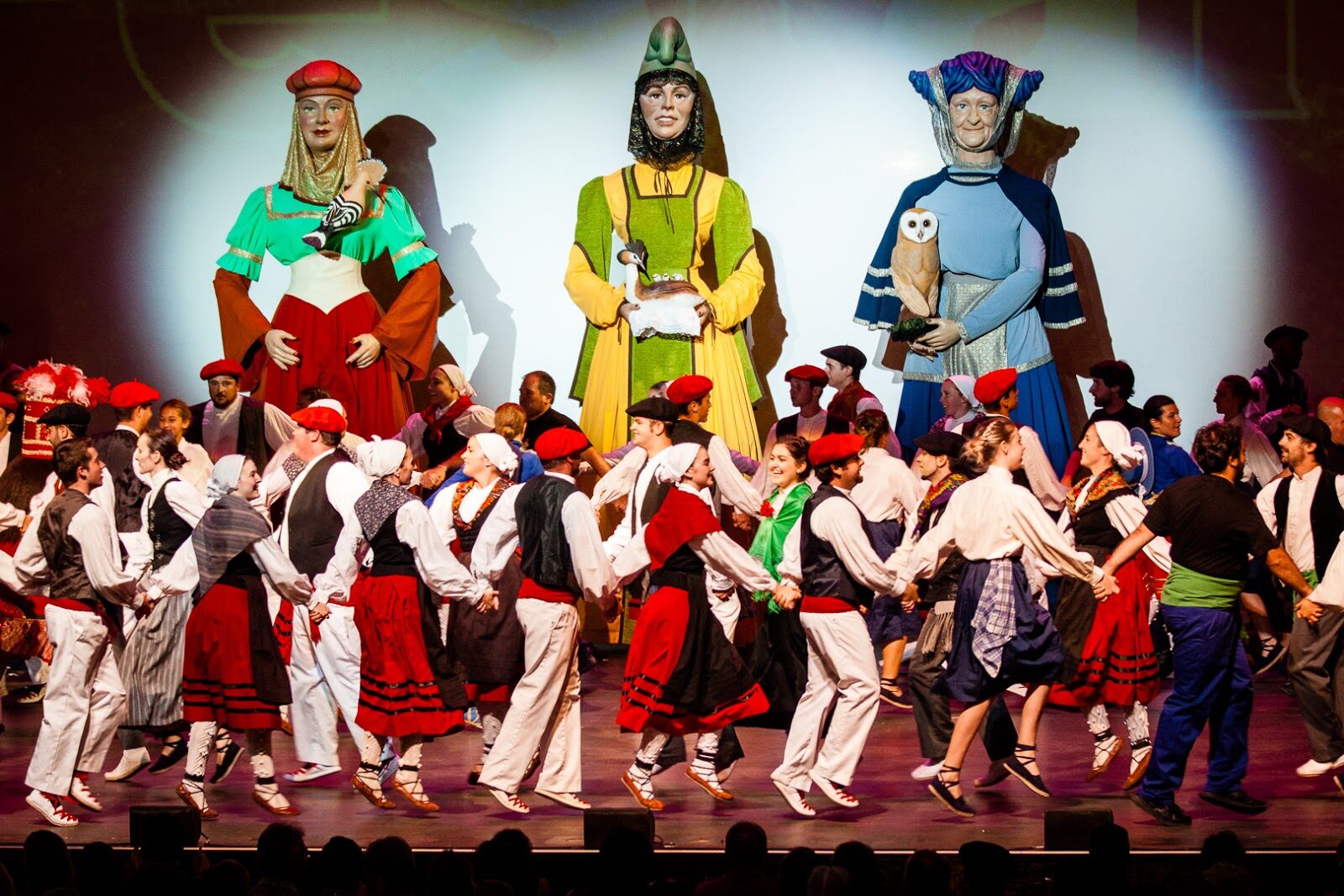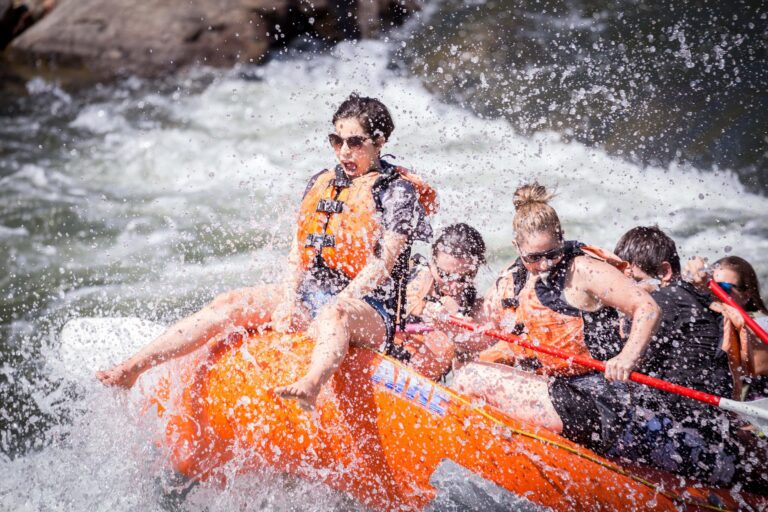Jaialdi — a huge neighborhood block party where tens of thousands of people from around the world gather together for Basque food, sports, dancing and nonstop fun.
With Boise being home to one of the densest Basque populations outside Europe, it’s no surprise the event is the largest celebration of Basque culture in North America. Held during the last week of July every five years, the entire city of Boise is filled with the scent of chorizo, the sound of accordions and entire generations of families dancing in the streets. For upcoming festival details, visit the Jaialdi website.
Want to know how to experience Jaialdi the Basque way? We’ll give you the rundown, taken straight from the Basques who call Boise home.
Tuesday & Wednesday
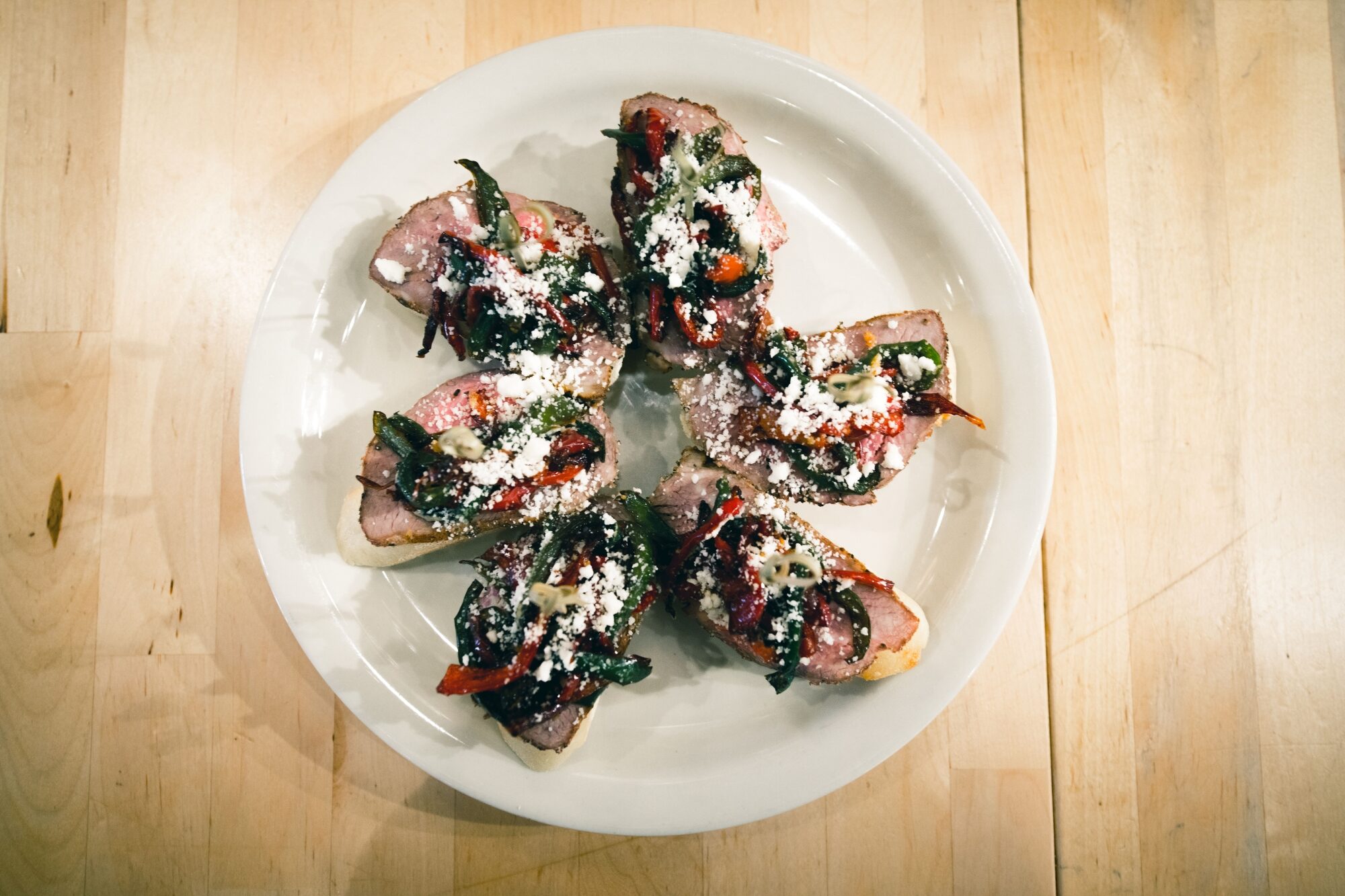
A plate of classic pintxos featuring smoked meat, pepper and cheese.
Starting at 5 pm everyday, there’s evening parties in Downtown Boise’s Basque block — and Jaialdi coordinator Julie Hahn says it’s the best way to kick off the week.
“When it cools off, it’s like the block transforms into those little Basque towns tucked in the countryside,” Julie says. “It really recreates the atmosphere of an old-world town filled with a vibrant community.”
The evening parties are held right in Boise’s historic Basque Block. All along the streets are old brick buildings that were once home to boarding houses and community centers where the first Basque immigrants used to live and work back in the late 1800s and early 1900s. If you look closely, you can find the lyrics of traditional songs etched into the sidewalk.
The Basque are a proud ethnic group from northern Spain and southern France. Their culture, cuisine and language is completely unique from the rest of Spain and France.
Think of these evening parties as your first plunge into Basque culture… more specifically, the food. At any of the vendors lined up along the Basque block, you can grab traditional dishes made just like they are in Euskadi (Basque Country).
Bite into spicy chorizo, a sausage simmering with peppery juices. Grab a platter of croquetas — crispy dough fried golden brown, filled with cheesy goodness. Try any number of pintxos (that’s Basque for tapas) that feature smoked meat, seafood, cheese and more.
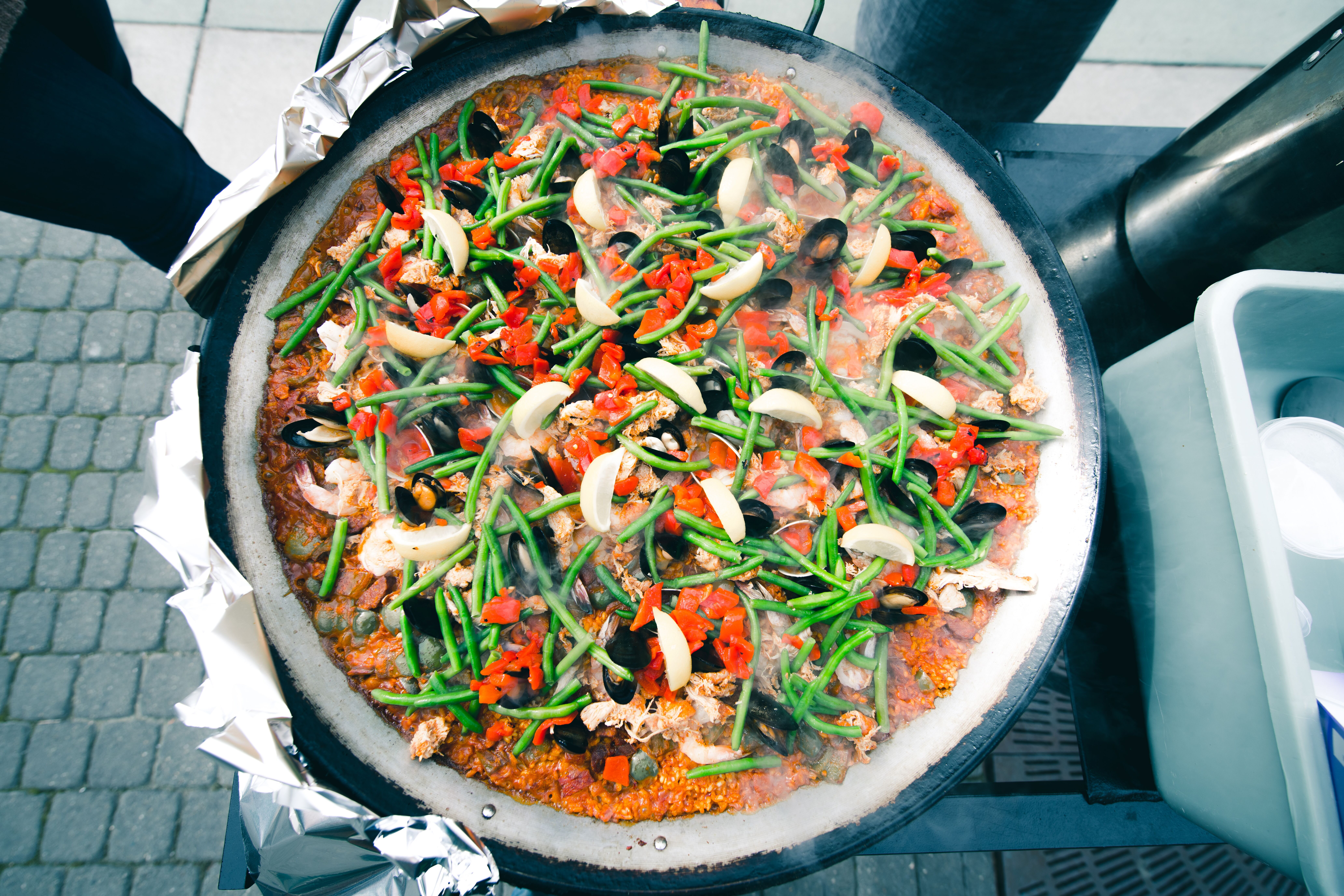
A huge pan of sizzling paella in the middle of The Basque Block.
At the center of it all, you’ll find a crowd gathered around a huge pan of paella — a simmering dish of rice, tomatoes, peppers, chorizo, mussels, clams, shrimp, chicken, chorizo and saffron. (Fun fact: Paella is traditionally a Spanish dish, but it’s the Basques who really made it their own.)
“Basque cooking is all about wholesome, simple food,” says Tara Eiguren, owner of The Basque Market alongside her husband Tony. “It’s all about taking what you’ve got and letting the natural flavors come through — we don’t cover anything up.”
Need a place to stay during Jaialdi? Take a look at our accommodations guide.
Thursday
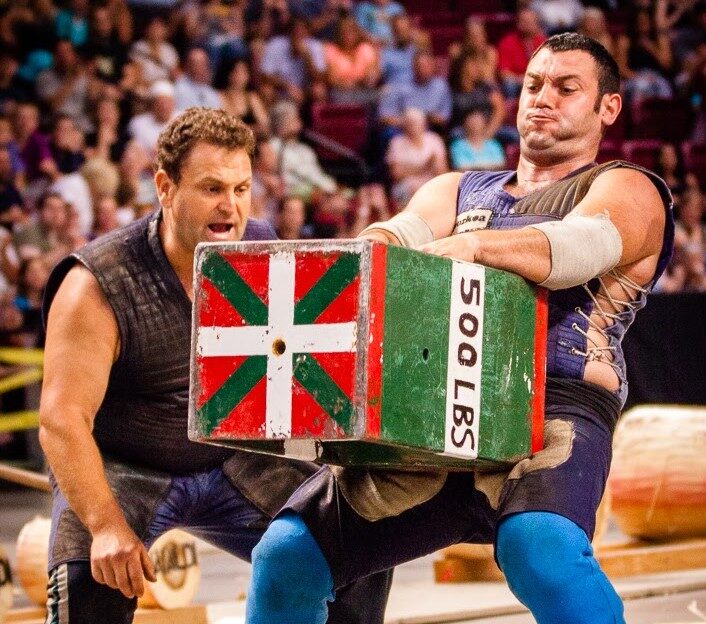
Basque athlete lifts 500 pounds as the crowd cheers him on. Photo courtesy of Jon Hodgson.
Thursday night is known by all Basques and Jaialdi regulars as Sports Night — and it can’t be missed.
Basque sports aren’t typical friendly competitions. They’re true feats of strength, might, power and will. According to the Eigurens, the tradition behind these competitions goes back hundreds (if not thousands) of years.
“Basque sports are all about, ‘Anything you can do, I can do better,’” Tony says, chuckling. “I just picture an old Basque farmer, standing out in that field and telling his friend, ‘I bet you can’t lift that rock.’ And that’s how it all began.”
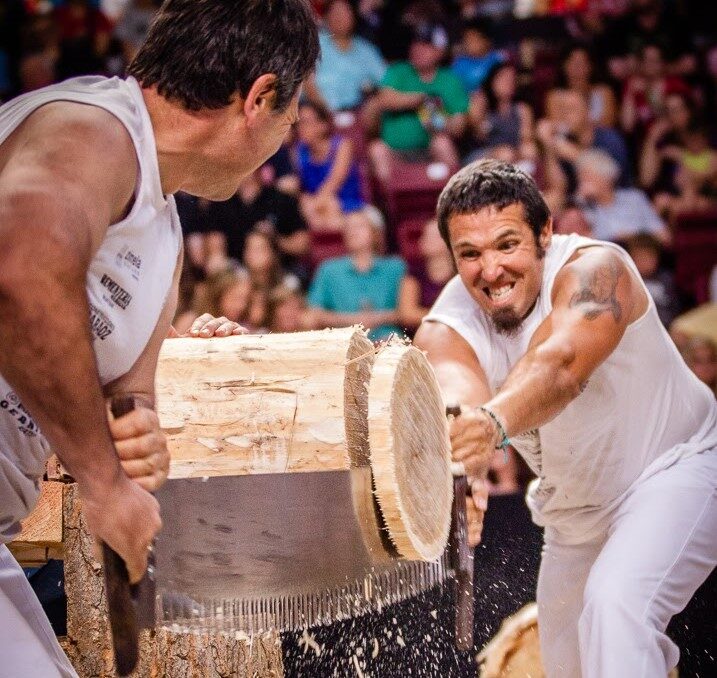
Extreme wood chopping at Jaialdi’s sports night. Photo courtesy of Jon Hodgson.
From the stadium seating in Boise’s Centurylink Arena, you’ll see athletes of all sizes lift solid stone boulders weighing 350 pounds or more. (A few can even effortlessly roll it along their shoulders before laying it gently on the ground.) You’ll witness tug of war taken to the next level with Sokatira, where men will do anything to pull the other team across the line… and so much more.
From extreme wood chopping to lightning-fast handball, all of these old-world sports are taken to the 21st century with smoke machines, bright lights, loud announcers… and even a little ACDC blaring through the speakers.
Want to book your tickets for Sports Night? Click here.
Friday
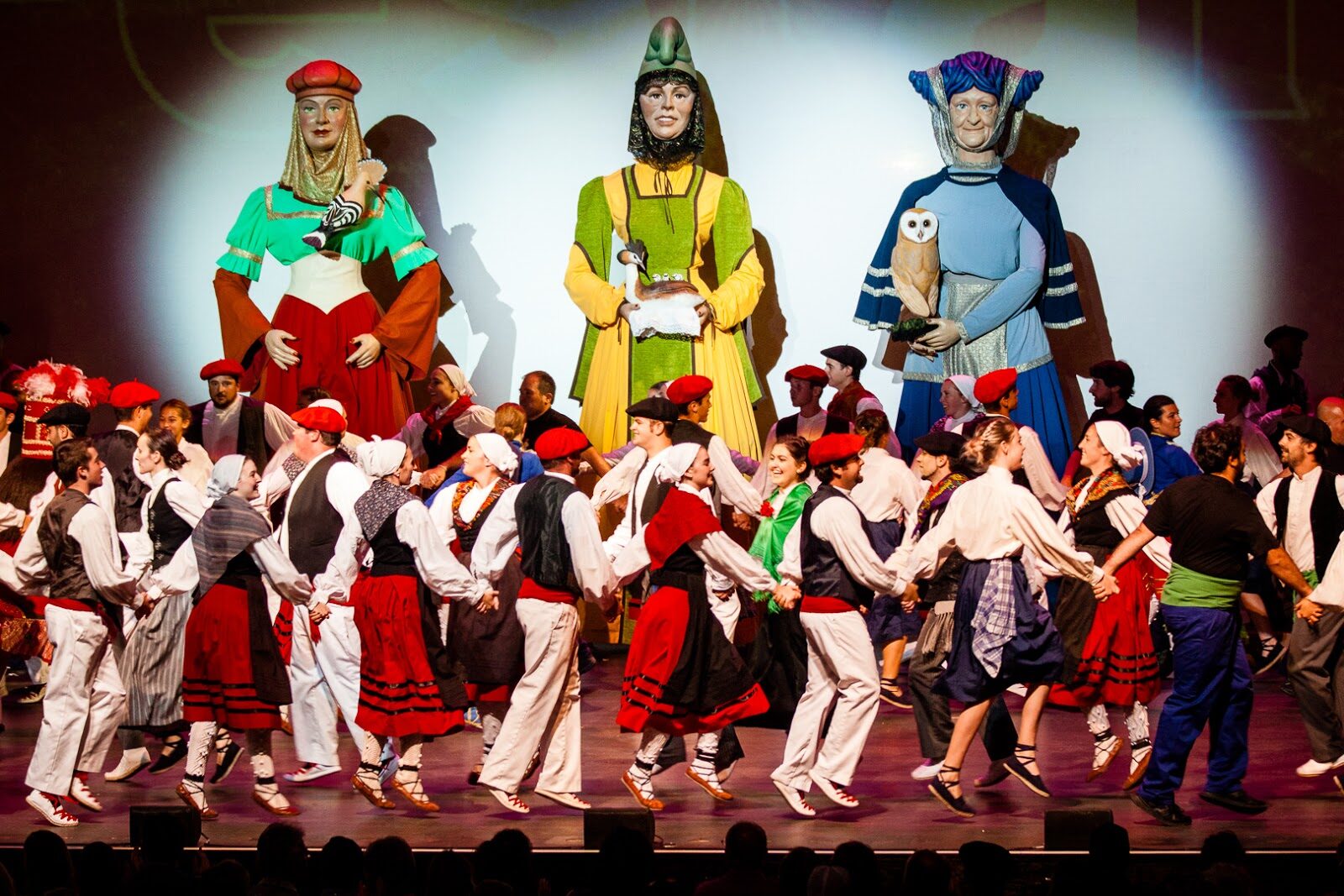
Mesmerizing traditional dances at Festara. Photo courtesy of Jon Hodgson.
Friday is Festara — a night of traditional basque dancing and music.
In Basque culture, dance is an important way for families, friends and even entire communities to bond. While some dances are more informal, where anyone can join in the circle, others are more symbolic with specific moves and songs that have a deeper meaning.
“There are songs for warding off spirits, ones for meeting with diplomats, ones for reenacting military battles…” Tony says. “Needless to say, going to an American prom after growing up learning Basque dance was…just a little awkward.”
Festara brings these ages-old traditional dances and songs to life on stage at The Morrison Center, right next to Boise State University’s campus. You’ll see Boise’s Oinkara Basque Dancers (and even other famous Basque dancers from across the world) leaping and spinning across the stage in traditional attire.
All the while, you’ll hear the same music that Basque bands have been playing for generations, full of traditional pipes, accordions, drums and more.
“Think of it as a crash course in all the amazing dance and music you’ll see over the weekend,” Julie says.
Saturday
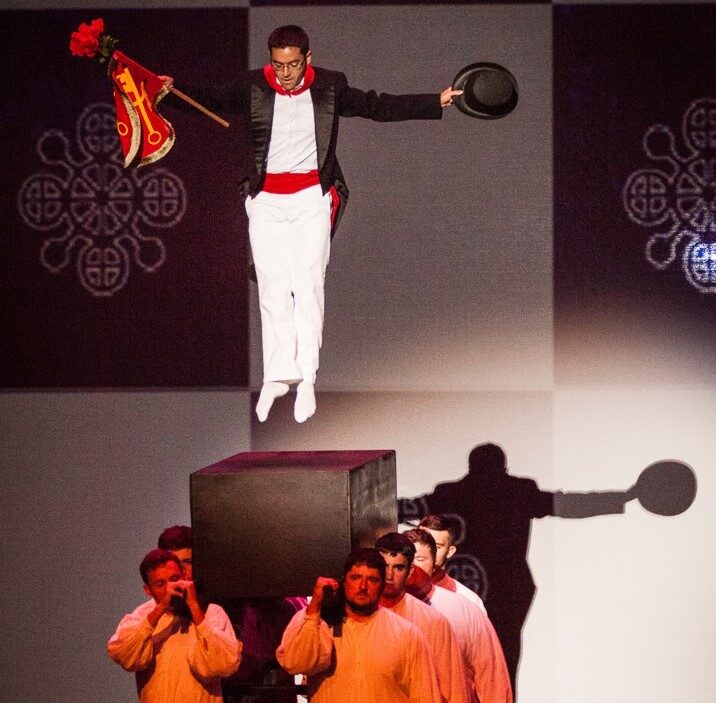
A traditional Basque dance filled with symbolic movements, classic attire and breathtaking moments. Photo courtesy of Jon Hodgson.
In 1987, Jaialdi started as a one-off festival that coincided with a celebration of the Basque’s patron saint, San Ignacio of Loyola. But after attracting 30,000 people to the event, former Idaho Governor Cecil Andrus asked if the celebration could be continued in 1990 for the state’s centennial celebration…and the rest is history.
On Saturday night, Jaialdi-goers honor the origin of the festival with a traditional mass at St. Mark’s Catholic Church in Downtown Boise. Underneath the vaulted ceilings, Basque dancers perform a liturgical dance while melodies written hundreds of years ago echo throughout the cathedral.
It’s a sacred moment. Ceremonies like these serve as a reminder — not only of the life Basques left behind in Euskadi, but in the new one they found in Idaho.
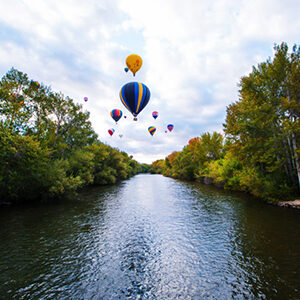
VISIT BOISE LIKE A LOCAL
“Most of our ancestors settled here from word-of-mouth,” Tony says. “They just took on a job, and moved to a land completely different from where they came from.”
When first-generation Basques immigrated to Southwest Idaho in the late 1800s, many of them came with just a job offer and nothing else. Many men herded sheep and other livestock alone in the high desert for days on end, sometimes with their families still an ocean away.
In the high desert (a complete shift from the lush coastal towns of Basque Country), the Basques made a new home for themselves. They stayed close with other families from their homeland and worked hard to keep traditions alive. Many of them taught their children how to dance, speak Euskara (the Basque language) and cook family recipes.
“When someone asks me, ‘What are you?’ or ‘Where are you from?’ I always say ‘I’m Basque,’” Tony says. “Here, we were able to keep our heritage close. We grew up immersed in it, and so we didn’t lose the traditions or culture.”
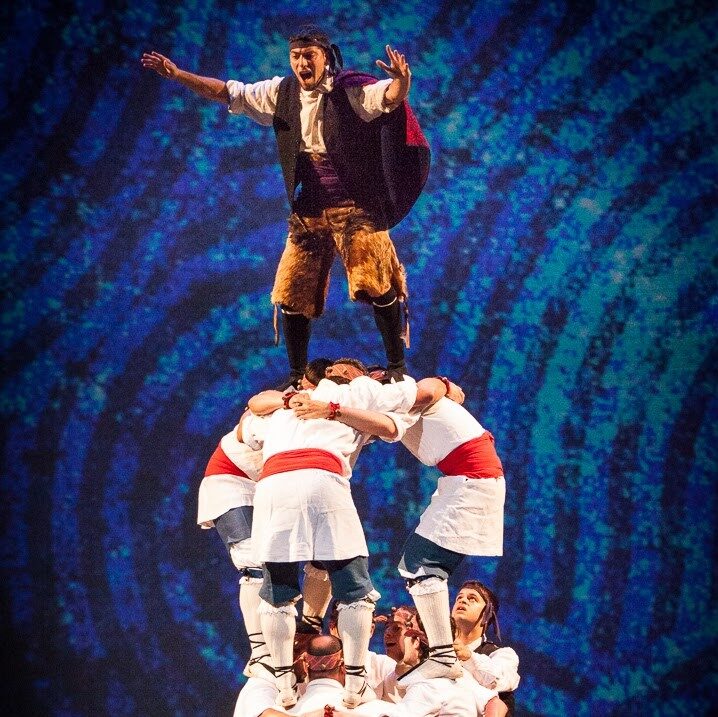
A glimpse into the daring stunts to be seen at Dantzaldi. Photo courtesy of Jon Hodgson.
After mass, everyone heads into the Centurylink Arena for Dantzaldi, a celebration of Basque music and dance where anyone can join in. You’ll see young kids dancing alongside great-grandparents and people dancing with complete strangers.
During the night, everyone learns the Jota at some point. It’s one of those dances five-year-old Basques learn right from the start, and it’s easy enough for anyone to pick up quickly. During the dance, couples will hold their arms in the air, repeating a short sequence of leaps and jumps to the melody of a classical guitar.
“Dance is part of the reason why the Basque culture is still so strong and tight-knit in Boise, even after all these years,” Julie says. “Kids grow up dancing and go on to teach their children.”
Sunday
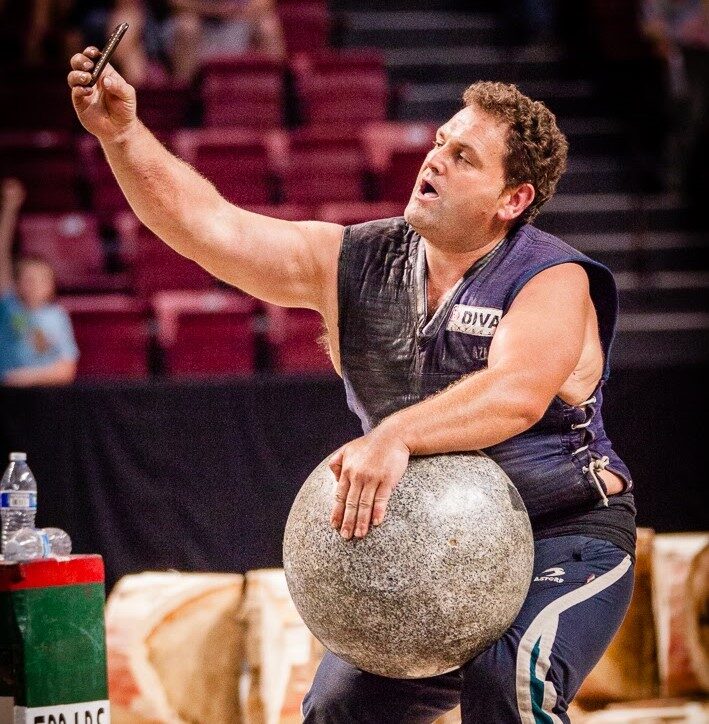
Extreme weightlifting — the Basque way. Photo courtesy of Jon Hodgson.
Throughout the weekend, Expo Idaho is filled with all things Basque. Locals sell handmade jewelry, art and clothing. Dancers perform on stage, while athletes compete in feats of strength. Old sheep wagons stand among the crowds. (And, of course, there’s always enough croquetas, pintxos and chorizo to go around.)
“T-shirts, art…anything that’s Basque, you’ll find it there,” Julie says. “It’s a great time to pick up that souvenir you’ve always been wanting or just to wander.”
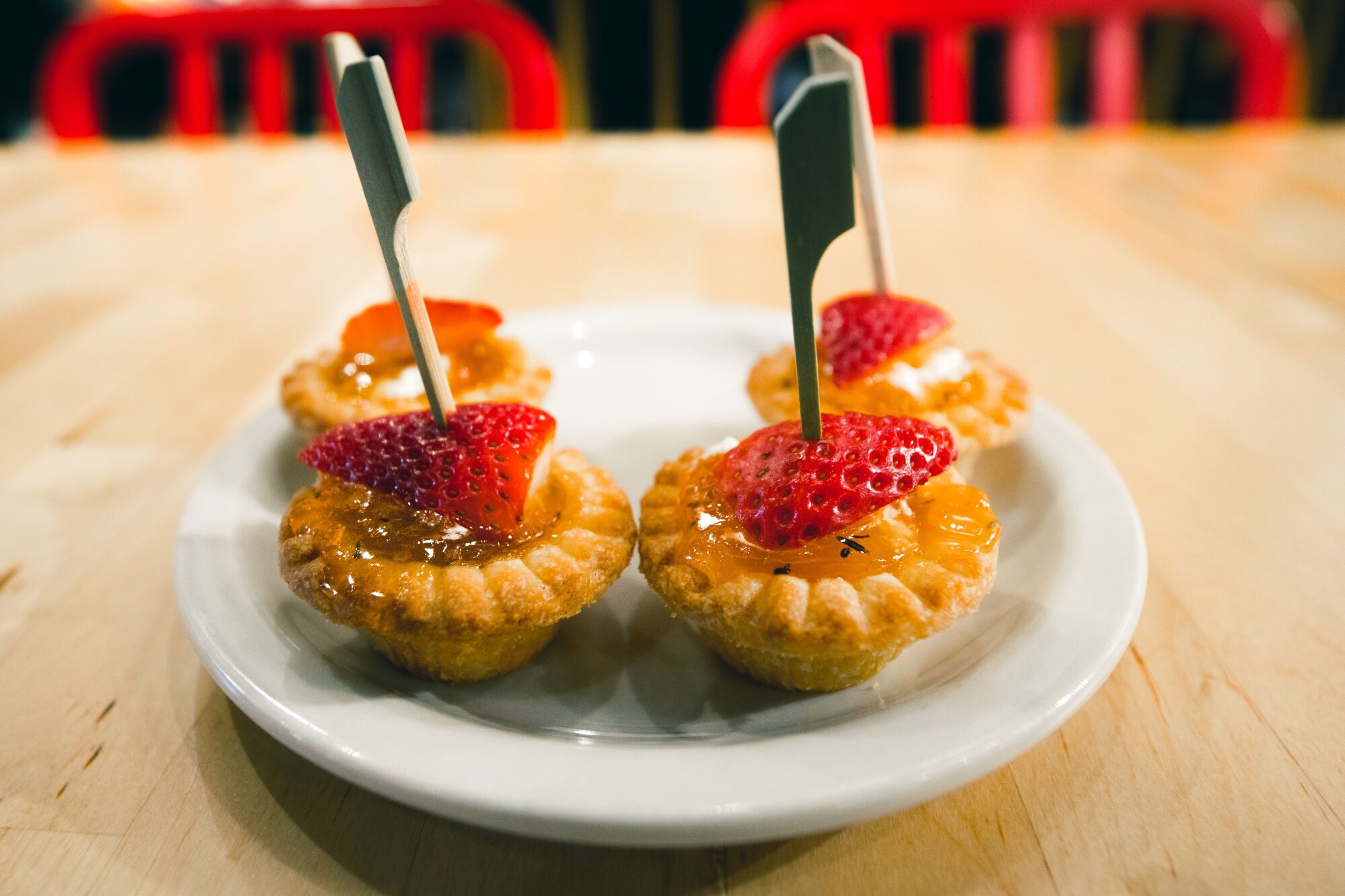
Sweet pintxos served up at The Basque Market.
On Sunday night, Jaialdi ends just as it started: with food, drink and dancing.
As the sun sinks below the trees, everyone returns to the Basque Block for one last street dance. Former strangers now hold hands, dancing together in a circle of people who now feel like family.
Whether you’re Basque, a native Idahoan or a newcomer, you’re welcomed in — just as you always have been since the festivities started. It’s rare for such a tight-knit community to invite visitors from around the world into their traditions like this…but that’s just how Boise’s Basque community has always been.
“Jaialdi is homecoming,” Julie says. “It’s when Boise opens up its doors to the world, and gives visitors a sneak peek into what it’s really like to be Basque, even just for a few days. We’re a culture without borders.”
6 tips before you go
- Take a shuttle. Jaialdi offers a number of free shuttles throughout the day, so you don’t have to worry about drinking a kalimotxo before heading to the next event.
- Stay close to town. You’ll want to stay in the thick of it all — close to all the food, events and dancing. We recommend staying at The Grove Hotel or the Inn at 500, both are within walking distance of the Basque Block. (Check out our accommodations guide for more Boise hotel recommendations.)
- Dance! Dancing is the best way to experience Basque culture. If you don’t know the moves, just ask!
- Wear sunscreen. It’s the peak of sunny season in Boise, full of blue skies and endless sunshine…and sunburns only ruin the fun.
- Bring water. You’re going to be dancing in the streets, walking through town and trying all sorts of new food. Stay hydrated!
- Try new things. Don’t be afraid to try something new. Watch sports you’ve never seen before, learn to dance and try new foods. You won’t have these experiences anywhere else.
Looking for more ways to experience Boise like a local? Read our guide.

